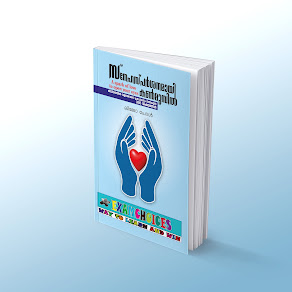SOIL SURVEY AND SOIL CONSERVATION DEPARTMENT
CATEGORY NO.517/2015
(Mechanical Engineering)
1.Fluid Mechanics and Hydraulic Machines
Definition of density,specific volume,specific gravity,viscosity,kinematic
& dynamic viscosity,compressibility,vapour
pressure,cohesion,adhesion,surface tension and capillarity.
Intensity of pressure at a point-pressure head-units of pressure-Pascal’s
law Atmospheric pressure-Gauge pressure-Absolute pressure-vacuum
pressure-problems-Measurements of atmospheric pressure-simple mercury
barometers-pressure measuring devices-peizometer tubes,manometers-U-tube
–simple differential and inverted tubes only-Mechanical Gauge-Bourdon tube
pressure gauge.Pressure on plane surfaces immersed in liquid.
Total pressure and center of pressure on horizontal,vertical and inclined
surfaces immersed in liquids.Pressure on lock,gates,sluice gate.
Kinematics and Dynamics of fluid flow
Introduction-types of fluid flow-steady and unsteady flow-uniform and
non-uniform flow-laminar and turbulent flow-compressible and incompressible
flow-rotational and ir-rotational flow-one,two and three dimensional flow-rate
of flow or discharge-equation of continuity of a liquid flow-simple
problems-energy of a liquid in motion-potential energy-kinetic energy-pressure
energy-total energy-total head of liquid in motion-Euler’s equation of
motion-Bernoulli’s equation from Euler’s equation-assumptions-simple
problems-practical applications of Bernoulli’s equation-venturimeter-Orifice meter-pitot
tube
Buoyancy and Floatation
Buoyancy-Centre of Buoyancy-Types equilibrium of floating bodies,Metacentre
and metacentric height.
Flow through Orifices,Notches,Weirs and Mouth pieces
Definition of orifice,types of orifices-(based size,shape flow condition)-definition
of vena contracta-hydraulic coefficients-Cv,Cc,Cd-experimental
determination.Submerged and partially submerged orifices.Large rectangular
orifice-expression for discharge-derivation.
Time for emptying a prismatic tank through an orifice at bottom or in the
side head loss due to sudden enlargement and sudden contraction at the entrance
of pipe from large vessel,at the exit of a pipe line,obstruction in pipe line
derivation of expression for head loss due to enlargement &
contraction-Types of notches-rectangular,triangular and trapezoidal notches
Discharge over
Rectangular,triangular and trapezoidal
notches.Classifications-definition-discharge over
Rectangular weir,end contraction in weir effect of end contraction over
discharge-Francis
Formula and Bazin’s formula for end contraction-velocity of
approach-problems broad crested
Weir-problems submerged weir description.Mouth piece-different
types-external and internal-cylindrical
Flow through pipes and channels
Frictional loss in pipes-Chezy’s and Darcy’s formulae-Derivation and
problems Hydraulic gradient and total energy line-Water hammer and its
effect(description only)Syphon.
Flow through Channels Wetted perimeter Hydraulic mean depth-uniform and
non-uniform flow-Chezy’s formula.
Turbines and Pumps
Introduction-development of water Turbines-classification-impulse
Turbine-Pelton wheelcomponents-velocity triangle and work done.Workdone-power
produced efficiency-number of jets-design of Pelton wheel-governing-other
impulse Turbines.
Reaction turbines-components-difference between impulse &
Reaction-Classification of
Reaction Turbines-discharge-power
produced-efficiencies-Francis Turbine-Kaplan Turbine-Draught tubes-other
reaction turbines.
Characteristics of Turbines-Significance-specific speed-selection of
Turbine-selection based on specific speed and head of water-characteristic
curve for Impulse and reaction Turbines.
Centrifugal pump-Introduction-types of casing-piping system of CP-work done
manometric head-efficiencies-discharge-power required to drive-multistage
pumps-simple problems.Performance-specific speed of CP-selection of pumps
based on specific speed and
head-cavitation-priming.
Reciprocating pumps-Types-comparison of CP&RP-discharge-slip-power
required-air vessels-indicator diagram of RP
Hydraulic control elements and components
Control valves—Functions-classifications-ratings-Describe the working of
pressure control valves viz,relief valves-pilot operated relief valve-poppet
valve-sequence valve Direction control valve-sequence valve Direction control
valves-types-sliding spool type-rotary spool type-check valves-1 way,2 way,3
way directional control valves,pilot operated check valve,solenoid control
valve.Flow control valve-types-gate,globe,pressure compensated butterfly
valves,non return valve,application circuits of control
valves.Seals-packings-materials for seals and packings-purpose of
sealing.Filters-types-necessity of filtration of fluids-intensifier-motors and
accumulators-purpose of accumulators viz,shock suppressions,fluid
makeup,leakage compensation,emergency power and holding-types of
accumulators-weight loaded,spring loaded,gas loaded
Hydro-electric Installation
Layout-intake works,pressure tunnel,penstock,surge tank,action of surge
tank anchor blocks and tailrace.
2.Engineering materials and properties
Metallic and non-metallic properties such
as-Mechanical,strength,hardness,toughness,brittleness,creep,fatigue,stiffness,ductility,malleability,elasticity
and plasticity.Electrical Properties-Resistance and Resistivity,conductance and
conductivity,capacitance.Magnetic properties-Magnomotive
force,rellectance,permeance,hysteresis Thermal properties-Specific heat,thermal
conductivity,thermal resistance,and thermal diffusivity.Chemical
properties:Corrosion resistance,acidity and alkalinity.Physical
properties:-density,viscosity,colour,finish,porosity.
Testing of Engineering Materials-
Destructive testing-tension and compression test
Hardness test:-Brinell,rock well,Vickers-impact test,fatigue test and creep
test,Nondestructive testing-Radio graphic,ultrasonic inspection,
Organic and ceramic materials-Introduction,classification
of rubber:natural and synthetic rubber,Plastic-thermosetting and thermoplastic
with examples-requirements of plastic and elastimers and their
uses.Classification of ceramics-properties and uses-glass building
stone,refractory materials,abrasive-materials,concrete
3.Basic Mechanical Engineering
Fundamentals of I.C.Engines
Definition,Classification,Two stroke engines,Two stroke petrol engines,Four
stroke engines,Four stroke diesel engines(construction and working using simple
line sketches),Four stroke petrol engines,Functions of different parts of
I.C.Engines(No sketch required),Comparison between-Two stroke and four stroke
engines,Petrol and diesel engines,Testing of IC engines-determination of
indicated power-brake power-mechanical efficiency-indicated thermal efficiency
brake thermal efficiency-specifc fuel consumption-heat balance sheet.
Air Standard Cycles
Assumption,Air standard efficiency Brief explanation with P.V.diagrams and
derivation with P.V.diagrams and derivation of air standard efficiency of
Carnot Cycle,Otto cycle,Diesel cycle,Joule cycle,Brief explanation of dual
combustion cycle with P.V.diagram(No derivation of air standard
efficiency),Simple and direct problems using standard expressions.
Air Compressors
a.Introduction Function of air compressors-uses of compressed air
.Classification of compressors.Working of reciprocating(single stage and two
stage)compressors,Rotary compressors(fans,blowers),centrifugal compressors and
axial flow compressors P-V diagram of single stage and two stage
compressors-derivation of work done-power required to drive the
compressor(simple problems)-inter coolers-advantages of multistage
compressors.Efficiencies of air compressor-mechanical efficiency,isothermal efficiency,isentropic
efficiency,volumetric efficiency,derivation of volumetric efficiency in terms
of clearance volume and stroke volume,effect of clearance on volumetric
efficiency
Modes of heat transfer-conduction,convection and
radiation.Fields of applications of heat transfer.Thermal conduction,Fourier’s
law of thermal conduction,thermal conductivity,conduction through a plane
wall,simple problems.Thermal radiation-Reflection,absorption,and transmission
of radiation,absorptivity,reflectivity and transmissivity.Convept of black
body.
Stefan’s Boltzman’s law of total radiation,concept of grey body,Thermal convection-Newton-Rikhman-equation
Q=hAt,Free convection,forced convection.
Heat exchangers-Function of heat exchangers,types of
heat exchangers-Recuperator type and regenerative type,parallel flow,counter
flow and cross flow.Concept of Logarithmic mean temperature difference(LMTD)and
AMTD.LMTD for parallel flow and counter flow heat exchangers(no
derivation).Simple problems to calculate heat transfer by LMTD method.
Types of Fuels-its value in engineering-classification
of fuels-soild fuels-liquid fuels-gaseous fuels requirements of a good
fuel.Calorific value of fuels-Gross or higher calorific value –net calorific
value-(simple problems)Determination of calorific values-bomb calorimeter-Gas
calorimeter.Combustion of fuels-Atomic theory-structure-Combustion equation of
solid fuels-Minimum mass of air required
for combustion-Mass of carbon in flue gases-Mass of flue gas per kg of fuel
burnt-Flue gas analysis-Orsat apparatus
PART –II
Basic Civil Engineering
1.Building Materials and Construction-Stone-Classification-geological,Physical
and chemical classification-characteristics of good building stone-varieties of
stones-granite-trap-basalt-sand stone-Laterite.Values of load bearing capacity
of stones.Quarrying of stones-methods-wedging and blasting-explosives used.Dressing
of stones.
Bricks:Raw materials used-Composition of brick
earth,manufacturing methods(Description only)-IS specification of
bricks-characteristics of good brick used for building purpose.Tiles:Types of
tiles characteristics-uses-Porcelain and glazed tiles Earthenware and stoneware
pipes-uses-qualities.
Lime:Sources of lime-Classification –methods of
manufacturing(Description only)Cements:Composition,Compounds
present,Manufacturing methods-characteristics of cement,Types of
cement-Properties of each-characteristics of cement-Tests on cement-Consistency
test,fineness test,Sp.gravity test,Setting time test,Soundness test.
Sand:Sources of sand-River sand,Sea sand and pit
sand-Limitations of mining of sand from rivers and sea
shore-M-sand,alternatives of sand.
Mortar:Preparation of lime and cement
mortar-Proportions of mortar for various items of work-tests on cement mortar
Cement Concrete:Plain concrete-Water cement
ratio-Ingredients and proportioning methods characteristics-preparation-workability-Tests
on Cement concrete-Laboratory tests and field tests-Slump test,compaction
factor test-Qualities of water used for mixing.Reinforced cement concrete
Timber and wood products:
Structural classification-Soft wood and hard wood –defects in
timberseasoning of timber-preservation of timber-wood products-veneers,ply
wood,particle boardfibre-board,hard board,etc.
Metals:Ferrous metals-Wrought iron,Cast
iron,Mild steel-Special steels-High carbon steel,High tensile steel and
stainless steel(Properties and uses only)-Non ferrous
metals:Aluminium,Copper,Lead,Zinc and Titanium-imporant alloys-properties and
uses.
Paints and Varnishes:
Types-Constituents-Preparation-Characteristics and application.
Plastics:types-characteristics and properties of P V C-uses-Limitations of
using plastics.Rubber:Characteristics and properties,uses
Component parts of a building and their functions-
Masonry:Classification-Stone masonry-Brick masonry-Laterite
masonry-composite masonry.Different types of stone masonry-General principles
and specifications for stone masonry as per relevant codes.
Brick masonry:Different types of bonds for walls,piers
and junctions of walls for equal and unequal thickness-English,Flemish(Single
and Double Flemish)-Specification for brick masonry as per relevant
codes.Hollow block masonry:
Types of hollow blocks used in construction and methods of
construction-Advantages and Disadvantages with reference to other types of
masonry.Solid block masonry and inter locking block masonry.Partition
walls-Types-materials-requirements.
Mechanic of Materials
Stress and strain-types of stresses-Elasticity-Hook’s law-Young’s
modulus-stresses and strains in uniform sections of same and composite
materials Mechanical properties of materials-Elasticity,stiffness,plasticity,toughness,brittleness,ductility,malleability
and hardness-Tensile test on ductile material(Mild steel bar)and stress strain
curve-compression test on brittle material(cement concrete)and stress strain
curve-limit of proportionality,elastic limit,yield point-ultimate
stress-breaking stress working stress and factor of safety.Temperature
stresses-elongation and contraction due to temperature change-temperature
stress when deformation is fully or partially prevented-temperature stress in
composite sections Linear strain and lateral strain-poisson’s ratio-volumetric
strain-volumetric strain of a bar subjected to normal forces on its faces-Bulk
modulus-modulus of rigidity-relationship between elastic constants
Beams,Columns and Struts
Classification of beams-cantilever,simply supported,fixed,overhanging and
continuous types of loading-concentrated,uniformly distributed and uniformly
varying Shear force and bending moment-definition and sign
conventions.Calculation of SF and BM for cantilever,Simply supported and
overhanging beams and sketching of SF and BM diagrams(for point
load,u.d.load,uniformly varying load ,and combinations of u.d.and point loads)
Relation between SF and BM.Maximum BM-point of contra flexure.
Columns-definitions-effect of axial load on
columns-column,strut,slenderness ratio,buckling factor,buckling load or
crippling load,safe load-types of columns-short column,medium size column,long
column-Euler’s equations and its assumption for crippling load for different End
conditions-both end hinged-one end is fixed and other is free,one end is fixed
and other is hanged,both ends fixed-limitation of Euler’s equation-equivalent
length-Rankin’s formulae Strut,column-failure of strut,short and long
columns-types of end conditions Euler’s formula for columns of different end
conditions-slenderness ratio-limitations of Euler’s formula-applications.
Riveted and Welded joints
‘Types –lap,butt,single cover,double
cover,single,double,multiple,chain,zigzag,diamond-empirical proportions-diameter
of rivet,plate thickness,margin,pitch-rivet materials.
Types of failure-rivets-by crushing and shearing-failure of plate by
tearing-strength and efficiency of joints-design of joints-lap and butt,single
and double riveted,single and double cover joint-caulking and filtering
operations.Types of failures two troughs,two cylinders,hoop stress-longitudinal
stress-calculation of thickness and pressure
Springs:Introduction-stiffness of a spring-types of spring-leaf
spring-helical springs-closely coiled and open coiled helical spring with round
wire-properties of spring materials-closely-coiled helical springs-subjected to
an axial load,an axial twist-stress induced-length-number of turns pitch
deflection-stiffness-diameter Torsional shear stress-torsional stress and
strains-polar moment of inerta.
Introduction to Computers & Word Processing
Introduction,application of computers,generations of
computers,classification of computers-analog,digital,hybrid Computers,Structure
of computer-Hardware and Software components.
Input unit,Output Unit,ALU,Memory Unit,Control
Unit,CPU,Microprocessor,micro,mini,supercomputers-machine languages,assembly
languages,high level languages-system software,application
software-assembler,compiler,operating system-Types of memory-primary
memory,secondary memory,sequential access,random access memory,RAM,ROM-magnetic
tape,floppy,hard disc,compact disc-input devices,out put devices.











There have always been successful people,you just need to decide you want to be one and plan for it.-Jerry Bruckner
ReplyDeleteKERALA PSC ,UPSC Civil service online practices available .Don’t forget our Youtube Channel Subscribe.